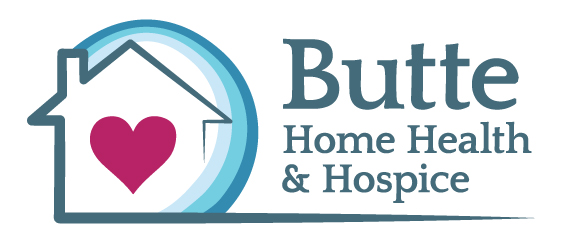We often speak with families who are making decisions for their loved ones, and educate them on their options for end-of-life care. When the topic of hospice comes up, it’s often met with hesitation, as if it’s a “last resort” or (even worse) that they are giving up on their loved one. Healthcare professionals, hospice and palliative care professionals, members of the community, and even grassroots campaigns have sought to change these perceptions- but when the time comes to make these difficult decisions, each situation and circumstances are unique, and every individual and their relationships make these times more challenging.
Since our team has these conversations regularly, we thought it might be interesting to get some perspectives- Is choosing hospice for your loved one REALLY giving up? We asked some of our professionals- social workers, a physician, a chaplain, and even a hospice nurse. These are the people who are with the families not only when they anguish over making the decisions, but they are there with them AFTER their decision is made, with the families in their journey with their loved ones. Here are their perspectives:
Perspectives
“Hospice is not giving up. It can allow patients and their families peace of mind knowing that they have someone to contact at all times and can check in with on a weekly basis. It can also relieve the stress of ongoing appointments when families have already been told that the patient is terminal and there are no other solutions. Those additional office visits, lab visits, and trips to the Hospital Emergency Room are stressors for all parties involved. Hospice provides support not only to the patient but their family as well. As a hospice team we are there to help guide families around disease progression and their emotional well-being. Hospice’s goal is to increase quality of life with symptom management, patient centered care, compassion and dignity.” – Vanessa B, Medical Social Worker
“Discussing hospice services with family members can often be met with resistance or fear that loved ones are giving up on their loved one. I personally do not believe hospice is giving up on a person but meeting them where they are at, and pivoting to meet the patient’s needs. Rehabilitative services like Home Healthcare are designed to help people get back to a prior level of functioning. When a person has a life limiting illness, it is often more appropriate to cater to the level of functioning that they are currently at, which is what Hospice is all about. Hospice services are for the entire family, it provides the tools and care to meet the patients’ needs and counseling and support to the family as they navigate this chapter of life. Hospice services are unique because they are one of the only medical models that has a holistic approach focusing on the physical, social, and emotional needs of both the patient and the family.” -Becca J, Medical Social Worker
“I’ve found the work of Dr Atul Gawande very helpful in these discussions, (watch: an interview with Atul Gawande). Rather than focusing on whether a decision means “giving up”, it’s far more important to have honest and meaningful discussions. Dr Gawande suggests asking important questions such as: What is your understanding of your prognosis? What are your biggest fears and concerns? What goals are most important to you? How do you want to spend your time if your health worsens? I like his approach, focus on living your best life until the end; hospice can help with that. We are about focusing on the patient, avoiding burdensome treatments, listening caring and hoping together. The emphasis is on making the most of the time left. People don’t realize that with good supportive care, patients often out-live the original prognosis. Furthermore, sometimes it is the aggressive therapies and related complications that hasten death….” -Aldebra Schroll, MD Hospice Physician
Hospice is not “giving up”, it is the acceptance that our life here is limited. It allows us to provide support, dignity and respect through a difficult transition. Hospice is a gift provided to those with a life limiting illness, and their family. Hospice services provides support, honesty, compassion and understanding. -Kelly A, RN Hospice Nurse
“I’ve found the work of Dr Atul Gawande very helpful in these discussions….I like his approach, focus on living your best life until the end; hospice can help with that. We are about focusing on the patient, avoiding burdensome treatments, listening caring and hoping together. The emphasis is on making the most of the time left. “
“When I meet with families I suggest that rather than “giving up” hospice is “accepting the changes” in their loved ones conditions. I encourage them to focus on not fighting nature anymore and leaning into what really matters at the end of one’s life – love and family. Not battles. “Separating the wheat from the chaff”.” -Kathy F, Medical Social Worker
“We measure life from two perspectives: quality of life and quantity of life. We hope for both – a better life and a longer life. We hope our lives will be filled with the joys of family, friends, and community. What is life without the support of those who love us? When confronting serious illness, we hope for medical cure which will extend our quantity of life. We hope for more time to enjoy life and those whom we love. Hospice care is a recognition that a medical cure is not always possible, but care from love ones grows in strength as we focus on the quality of our lives. Hospice care offers us the hope of living in the present. We find joy in living one day at a time and sharing our life surrounded by the care of loved ones. We do not give up hope, but hope for the best quality of life for as long as we have life.” –Bronson P, Chaplain/Spiritual Care Coordinator
Conclusion
In summary, hospice care isn’t about giving up; it’s about shifting the focus to comfort and quality of life when a cure is no longer possible. The goal is to provide support, alleviate pain, and address emotional and spiritual needs for those with terminal illnesses. It’s a compassionate approach that respects the individual’s choices and provides support for both the patient and their family. It’s more about enhancing life in its final stages rather than simply giving up.
It’s time to re-think perspectives when it comes to choices. Hospice doesn’t need to be last resort when there is nothing else left, nor does it need to be a time of sadness and despair. Instead, as many families have shared, it can be a great gift not only for the patient, but for their family and loved ones.
If you’d like to speak to someone about your options for hospice care for a loved one, please feel free to contact us via phone (530)895-0462, or email info@buttehh.org. You can also read more about Hospice Care on our website.







